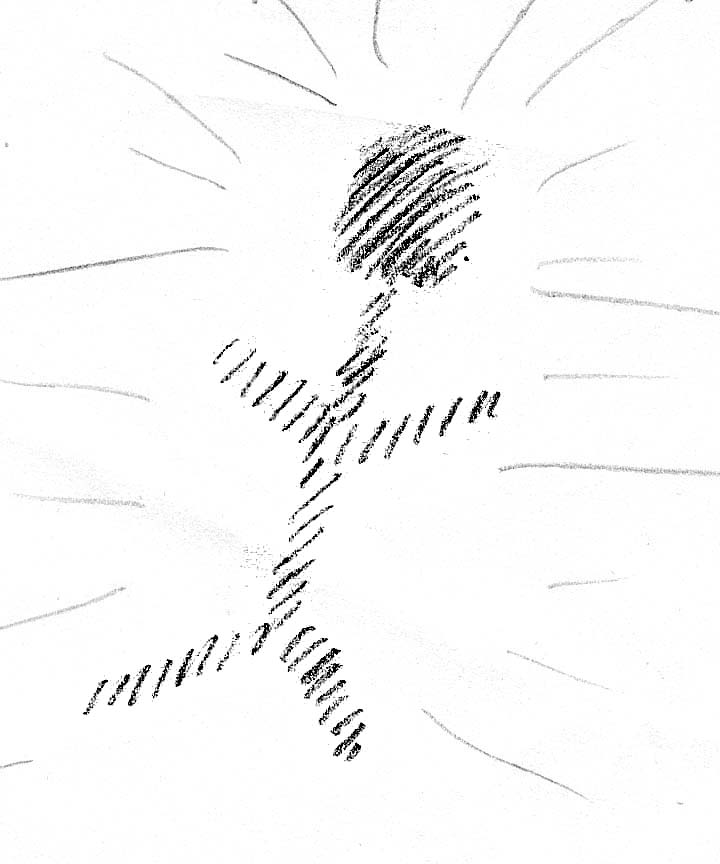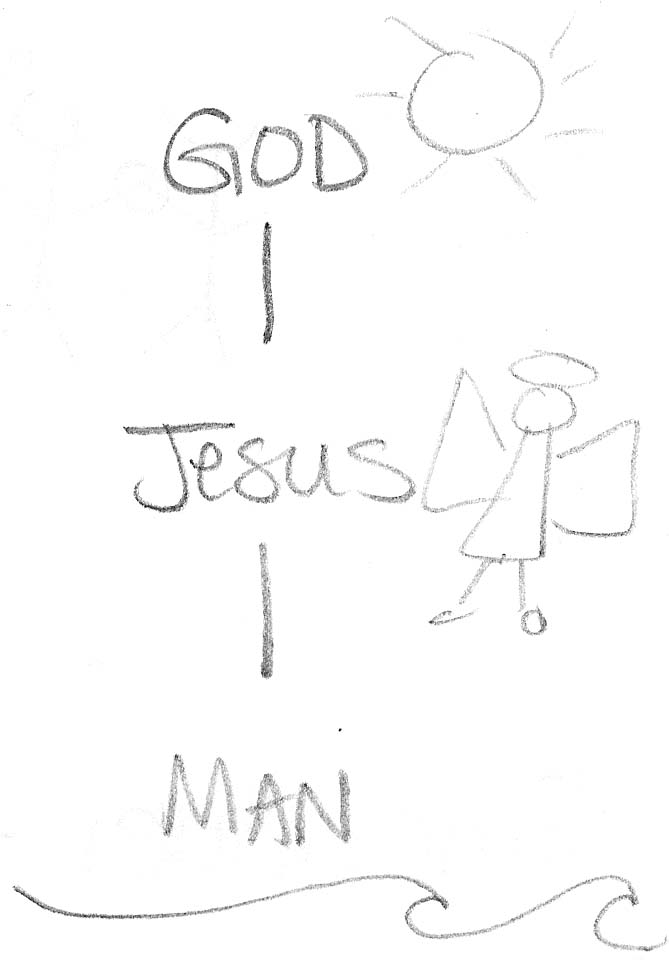Council of Chalcedon, 451, on the "hypostatic union":
Christological heresies, even if well-intentioned, still deny the incarnation.

|
II. Jesus as Exemplar: Ebionism Jesus is a man chosen for special divine sonship (like David). Jesus is created, not begotten; not God made human, but an inspired prophet. Contemporary schools: Islam, early Unitarianism. A church merely stressing Jesus as teacher or example is functionally Ebionite. |

|
III. Jesus as Overachiever: Adoptionism Jesus becomes divine during his life (at his baptism?). Jesus is chosen for his prior human virtue. Sonship is reduced to obedience; Jesus' relationship with God is just moral. Jesus' righteous example shows the way to our salvation (cf. Roger Bannister). Contemporary school: Mormonism? A legalistic church is functionally adoptionist. |

|
IV. Jesus as Alter Ego: Nestorianism Mary mothered only Jesus' human nature, not the person of God the Son. Christ's two persons are united morally, with adoptionistic consequences. Contemporary school: Churches of the East. A Jesus struggling between divine and human is functionally Nestorian. |

|
V. Jesus as Poseur: Docetism (cf. 1 John 4:1-3a) Some Gnostics: the body of Christ wasn't real, but a mere appearance. Respect for God's transcendence and Christ's divinity excludes his commonality with us. Jesus is like Clark Kent, or Jake Sully in Avatar. Contemporary school: Hindus, some New Age Gnostics. Christians who concentrate on Jesus' divinity are functionally Docetic. |

|
Eutyches (not Acts 20:9!): "Two natures before, one after, the union." The Borg, or a business acquisition, or an alloy (cf. patristic 'hot iron'). Infinity plus finity: Unity comes at the cost of humanity (and perhaps divinity). Contemporary schools: Sufism; some Buddhisms? Spiritualistic or transcendentalist Christian attitudes are often monophysite. |

|
VII. Jesus as the Terminator: Apollinarianism Apollinarianius: The logos was a divine mind or soul in Jesus' human body. Jesus' humanity is partial; is he tempted? did he suffer? has Jesus really redeemed humanity? Churches where Jesus' mind or intelligence is not human are Apollinarian. Contemporary school: some evangelicals? |

|
VIII. Jesus as Dilbert: Arianism |

|
1. Christmas celebrates "Emmanuel" (Isa 7:14 and 8:8-10, Matt 1:23), affirming all three affirmations. Heretical traditions often resist observing Christmas. Christmas' history: Not a pagan accretion, but comes nine months after Easter/Annunciation. Christmas was popular and useful when Arianism was the biggest threat. 2. Respect for Mary honors her role in Jesus' incarnation. Jesus is divine, human, one from his conception; Mary is "mother of God." Scripture asks for respect for Mary (Luke 1:48). Mary is the source of Jesus' humanity (and, in that way, our salvation). Easy to misunderstand (as in Islam, medieval Catholicism, evangelicalism). Yet adoptionism is a problem in liberal Protestantism where respect for Mary is weakest. |